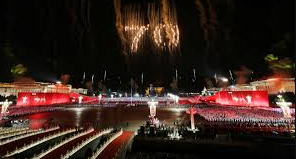
The animated adaptation of Charlie Mackesy’s bestselling book captivated four million viewers on Christmas Eve.
The BBC One adaptation of Charlie Mackesy’s heartwarming illustrated book The Boy, The Mole, The Fox And The Horse was the most-watched programme on Christmas Eve, attracting an average of four million viewers.
The short film, which reimagined Mackesy’s iconic illustrations through hand-drawn animation, touched on themes of kindness, friendship, hope, and courage. The author expressed his gratitude, saying: “I’m deeply moved and thankful that so many watched it. I truly hope they enjoyed it. Thank you all – I could never have imagined this.”
The film featured an all-star cast, including Idris Elba as the voice of the fox, Tom Hollander as the mole, Gabriel Byrne as the horse, and newcomer Jude Coward Nicoll as the boy. The production was led by Hollywood director J.J. Abrams and Hannah Minghella of Bad Robot Productions, with an original score by Isobel Waller-Bridge.
Originally published in 2019, The Boy, The Mole, The Fox And The Horse explores the journey of its four characters as they form an unlikely bond while searching for a home. The book was named Waterstones’ Book of the Year and was shortlisted for the British Book Awards’ Non-fiction Lifestyle Book of the Year.
Mackesy, a 59-year-old artist, has previously collaborated with Nelson Mandela on a lithograph project and is involved with a honey enterprise in Zambia. His latest exhibition, featuring 60 original works of art inspired by the book, is currently on display at Sotheby’s.













Comments
Hello world!
Pic of the week: Sunset at margate beach
The first day’s journey was through the pink fields
The first day’s journey was through the pink fields
The first day’s journey was through the pink fields